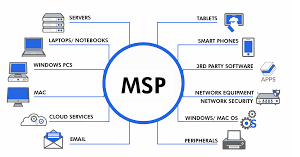In today’s fast-moving digital landscape, businesses must stay agile, informed, and innovative. Whether you’re a startup or a multinational company, adapting to new technologies and digital strategies is critical to remain competitive. That’s where a digital consultant plays a vital role—offering expert guidance to help you navigate the digital transformation journey successfully.
A digital consultant is a specialist who helps organizations leverage technology to improve operations, customer experience, and profitability. They analyze existing business models, identify inefficiencies, and create custom strategies that align with long-term goals.
The Growing Importance of Digital Consulting
The rise of digital technologies like artificial intelligence, machine learning, cloud computing, and data analytics has reshaped how companies operate. Traditional business models are no longer enough to keep pace with ever-evolving consumer expectations and market dynamics.
Here are a few reasons why digital consulting is now more crucial than ever:
- Technological Advancements: Staying updated with rapid tech changes requires expert knowledge.
- Customer-Centric Demands: Users expect fast, intuitive, and personalized experiences.
- Remote Work Models: Businesses need digital infrastructures that support flexibility.
- Competitive Pressure: Early adopters of digital innovation gain a strong edge.
Hiring a digital consultant helps companies develop the digital fluency needed to thrive in this complex environment.
What Does a Digital Consultant Do?
A digital consultant brings together technical expertise and business acumen. Their responsibilities vary based on the client’s goals, but typically include:
1. Digital Strategy Development
They create customized roadmaps that incorporate new technologies to meet specific business objectives. These strategies often cover digital marketing, process automation, data-driven decision-making, and customer engagement.
2. Technology Implementation
From CRM systems to ERP software, consultants identify the right tools for your organization and ensure seamless integration with existing infrastructure.
3. Business Process Optimization
By analyzing workflows and operations, they find ways to eliminate bottlenecks, reduce costs, and improve efficiency.
4. Change Management
Introducing new digital tools can lead to resistance. A digital consultant helps manage organizational change by training employees and fostering a digital-first mindset.
5. Data and Analytics Insights
They utilize data analytics to uncover trends, measure performance, and make informed decisions that enhance ROI.
To explore their role in more detail, refer to this insightful resource on digital consultants.
Who Needs a Digital Consultant?
While large enterprises often rely on consultants to lead major digital initiatives, small and medium businesses benefit just as much. If any of the following scenarios apply to your business, it’s time to consider hiring a consultant:
- You’re planning to launch a new product or service digitally.
- Your internal team lacks technical know-how.
- Your competitors are outperforming you online.
- You want to enhance customer experience or streamline operations.
- You’re struggling with outdated software or inefficient systems.
A digital consultant brings fresh perspective and tried-and-tested methodologies that boost performance.
Enter the Digital Transformation Consultant
For organizations undergoing large-scale changes, a digital transformation consultant offers even deeper value. While digital consultants focus on strategy and tools, a digital transformation consultant oversees holistic change across all business units.
This role involves:
- Restructuring business models.
- Implementing enterprise-wide platforms.
- Driving innovation culture.
- Ensuring alignment between IT and business teams.
A digital transformation consultant plays a strategic role in future-proofing businesses, ensuring they’re not just using technology—but leveraging it to lead.
Key Benefits of Hiring a Digital Consultant
1. Cost Efficiency
By identifying inefficiencies, automating tasks, and reducing redundancy, consultants help cut operational costs.
2. Access to Specialized Skills
Instead of hiring full-time staff for every digital role, businesses can tap into a consultant’s broad expertise as needed.
3. Faster Project Execution
Experienced consultants bring best practices and ready-to-use frameworks, accelerating your digital initiatives.
4. Scalability and Flexibility
Digital consultants design scalable systems that grow with your business, making future expansions easier and more cost-effective.
5. Risk Reduction
By assessing risks early and creating contingency plans, they help minimize costly errors and ensure compliance with regulations like GDPR or HIPAA.
How to Choose the Right Digital Consultant
When selecting a consultant, it’s essential to find someone who understands both your industry and your vision. Here are key qualities to look for:
- Proven Track Record: Ask for case studies and references.
- Clear Communication: They should explain complex concepts in a simple, actionable way.
- Customization: Avoid cookie-cutter solutions. Look for tailored strategies.
- Tech-Savviness: Ensure they’re proficient with modern tools and platforms.
- Adaptability: The digital landscape changes fast—your consultant should, too.
For a trusted starting point, check out the detailed overview on digital transformation consultants and how they differ from general tech advisors.
Common Misconceptions About Digital Consulting
Some businesses hesitate to hire consultants due to myths such as:
- “We can do it all in-house.”
Reality: Internal teams often lack the bandwidth or specific expertise needed for successful digital transformation.
- “Consultants are too expensive.”
Reality: A good consultant pays for themselves through improved efficiency and cost savings.
- “One-time implementation is enough.”
Reality: Digital transformation is ongoing. Continuous optimization is key.
By overcoming these misconceptions, businesses can make smarter investments in their digital future.
Final Thoughts
As the world becomes more connected, competitive, and customer-driven, having the right digital strategy is non-negotiable. A digital consultant empowers your organization to harness the full potential of digital tools—ensuring your business not only survives but thrives.
Whether you’re initiating your first online campaign or overhauling legacy systems, working with a digital transformation consultant can make the process smoother, faster, and more impactful.
FAQ
What is a digital consultant?
A digital consultant is a professional who advises businesses on how to use digital technologies effectively to solve problems, improve operations, and grow their online presence. They create customized digital strategies, optimize existing systems, and guide digital transformation initiatives.
How does a digital consultant differ from a digital transformation consultant?
While both roles help businesses evolve digitally, a digital transformation consultant focuses on large-scale changes across the entire organization. In contrast, a digital consultant may work on specific areas like marketing, automation, or analytics. Transformation consultants usually lead end-to-end shifts in culture, infrastructure, and operations.
What industries benefit the most from digital consulting?
Nearly every industry can benefit, including retail, healthcare, finance, education, logistics, and manufacturing. Any business aiming to improve digital workflows, enhance customer experiences, or adopt new technologies can gain a competitive edge by hiring a digital consultant.
When should a business hire a digital consultant?
You should consider hiring a digital consultant when launching a new digital initiative, experiencing slow growth, dealing with outdated systems, or lacking in-house tech expertise. Consultants are especially valuable during times of change, such as scaling, rebranding, or entering new markets.
What should I look for when choosing a digital consultant?
Look for a consultant with a strong portfolio, proven results, industry knowledge, excellent communication skills, and a tailored approach. They should offer more than just tech advice—they should align digital strategies with your core business goals.



































